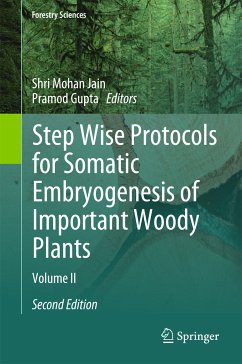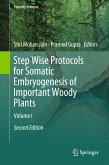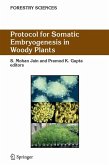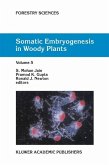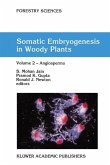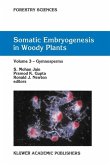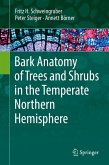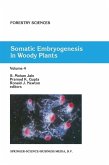Volume 1 includes a total of 23 book chapters covering Abies sps, Picea sps, Pinus sps., Eucalyptus globulus , Quercus sps., Larix x eurolepis, Podocarpus lamberti, manufactured seeds, SE. Fludics system, cryopreservation, Anther culture.
Volume 2 deals with 27 book chapters on guava, olive, coffee, microspore embryogenesis in almond, cacao, black cohosh, tamarillo, coconut, cherry, date palm, oil palm, rough lemon, alpataco, hybrid aspen, rose, grapevine, Turkish cyclamen sps, Gomortega keule, tea, Acai palm, Passiflora, tree-fern somatic embryo cryopreservation, tamarillo cryopreservation, avocado, haploid embryogenesis in tea, neem.
The book provides stepwise protocols for somatic embryogenesis of a range of selected woody plants in order to assist researchers to initiate somatic embryogenic cultures without too much alterations in protocols. Each chapter provides information on initiation and maintenance of embryogenic cultures; somatic embryo development, maturation, and germination; acclimitization and field transfer of somatic seedlings.
Dieser Download kann aus rechtlichen Gründen nur mit Rechnungsadresse in A, B, BG, CY, CZ, D, DK, EW, E, FIN, F, GR, HR, H, IRL, I, LT, L, LR, M, NL, PL, P, R, S, SLO, SK ausgeliefert werden.

